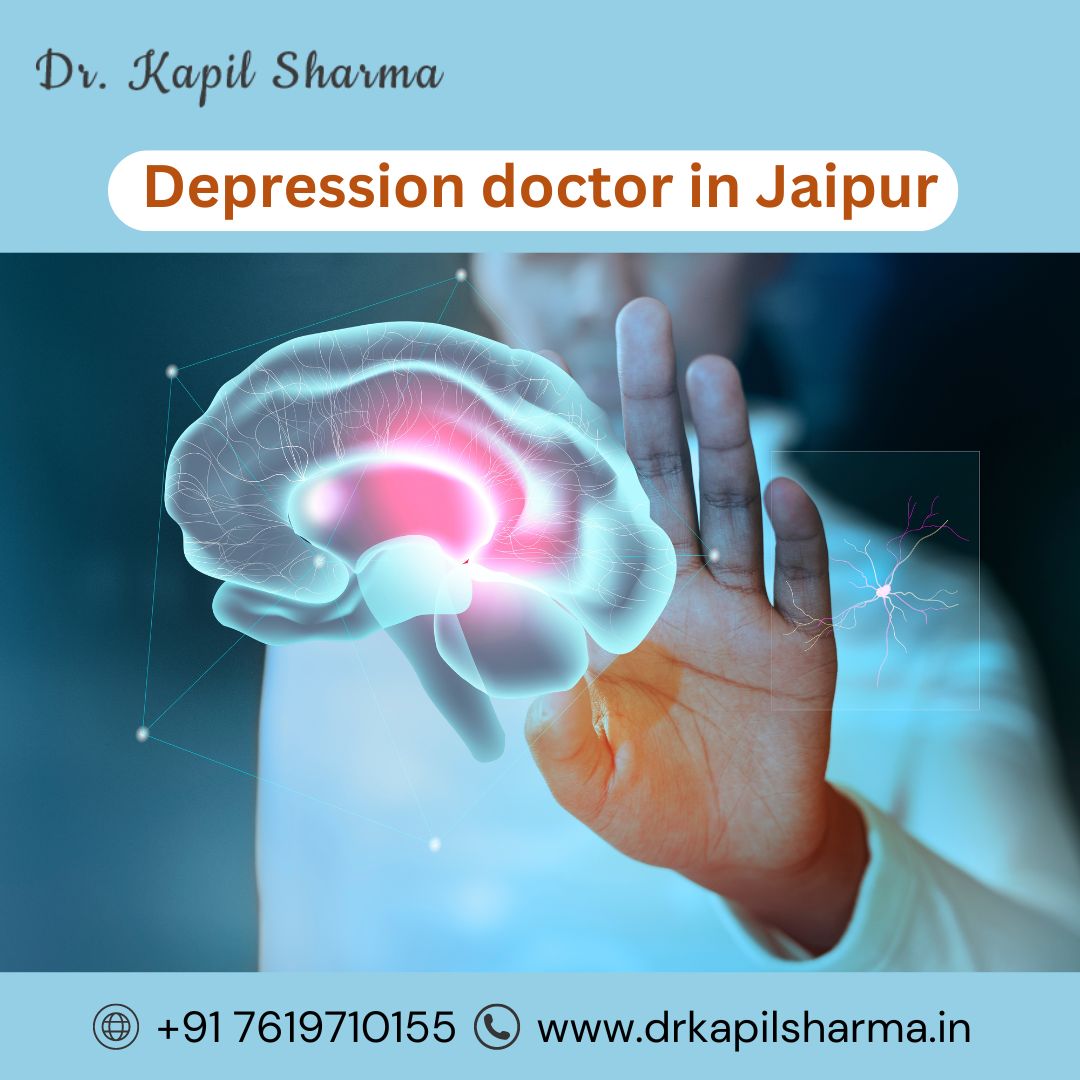
Depression vs. Sadness: Understanding the Difference
Everyone experiences sadness from time to time. It’s a normal emotion that can arise after a difficult event, like losing a job, ending a relationship, or hearing bad news. However, when this feeling lasts longer and affects daily life, it might be more than just sadness—it could be depression. Understanding the difference between sadness and depression is important because it helps in knowing when to seek help, especially from a depression doctor in Jaipur.
What is Sadness?
Sadness is a natural emotional response to something upsetting or disappointing. It’s a feeling everyone has at some point in life, and it usually goes away on its own after some time. Sadness can come from various situations, like:
- Losing a loved one
- Failing an exam
- Arguing with a friend
- Watching a sad movie
When you’re sad, you might feel low, cry, or withdraw from activities for a while. But over time, you begin to feel better, and the sadness fades as the situation improves or as you adjust to it.
What is Depression?
Depression is more than just sadness. It’s a serious mental health condition that affects how you feel, think, and act. Unlike sadness, depression doesn’t just go away after a few days. It lingers and can last for weeks, months, or even years if not treated. Depression affects many aspects of life and can make it hard to enjoy things you used to like.
People with depression may experience:
- Persistent sadness: Feeling sad or empty for most of the day, nearly every day.
- Loss of interest: Losing interest in activities you once enjoyed, like hobbies, sports, or socializing.
- Changes in appetite or weight: Eating much more or much less than usual, leading to weight gain or loss.
- Sleep problems: Difficulty falling asleep, staying asleep, or sleeping too much.
- Fatigue: Feeling tired all the time, even after a good night’s sleep.
- Feelings of worthlessness: Constant thoughts of being a failure, having low self-esteem, or feeling guilty.
- Difficulty concentrating: Trouble focusing on tasks, making decisions, or remembering things.
- Thoughts of death or suicide: Thinking about death, harming yourself, or ending your life.
Key Differences Between Sadness and Depression
While sadness and depression may seem similar, there are key differences that set them apart:
- Duration: Sadness is usually temporary and fades with time. Depression lasts much longer, often for weeks, months, or even years.
- Intensity: Sadness can be deep, but it doesn’t consume your entire life. Depression, on the other hand, is all-encompassing, affecting nearly every aspect of daily living.
- Physical Symptoms: Sadness doesn’t typically cause physical symptoms like changes in sleep, appetite, or energy levels. Depression often does.
- Impact on Life: Sadness might make you feel low for a while, but you can still function in your day-to-day activities. Depression makes it hard to do even basic tasks, like getting out of bed, going to work, or taking care of yourself.
- Self-Esteem: While sadness might make you feel down, it doesn’t usually affect your overall self-worth. Depression often leads to feelings of worthlessness or extreme guilt.
Why It’s Important to Recognize the Difference
Recognizing the difference between sadness and depression is crucial because it determines the type of help you might need. Sadness usually resolves on its own, and talking to a friend, family member, or therapist can help you process your feelings. However, depression is a medical condition that often requires professional treatment, such as therapy, medication, or both.
When to Seek Help
If you or someone you know is experiencing the symptoms of depression, it’s important to seek help. Depression is not something that can be simply “snapped out of.” It’s a condition that requires treatment. Here are signs that it’s time to talk to a doctor or mental health professional:
- The feelings of sadness or emptiness last for more than two weeks.
- You’ve lost interest in most activities.
- You’re having trouble sleeping or are sleeping too much.
- You feel tired all the time, even after resting.
- You’re having trouble concentrating or making decisions.
- You feel hopeless, worthless, or guilty nearly every day.
- You have thoughts of harming yourself or suicide.
How Depression is Treated
Depression can be effectively treated with the right approach. Treatment often includes:
- Therapy: Talking to a psychologist, counselor, or therapist can help you understand your feelings and develop coping strategies.
- Medication: Antidepressant medications can help balance the chemicals in your brain that affect mood.
- Lifestyle Changes: Regular exercise, a healthy diet, and getting enough sleep can also support recovery from depression.
- Support Groups: Joining a support group can connect you with others who understand what you’re going through.
Conclusion
While sadness is a normal part of life, depression is a serious condition that requires attention and care. Understanding the difference between the two can help you know when to seek help for yourself or support others who might be struggling. Remember, depression is treatable, and with the right help, you can feel better and regain your quality of life. If you think you might be depressed, don’t hesitate to reach out to a healthcare professional. The Best Psychiatrist Doctor in Jaipur can provide the support and treatment needed to manage depression effectively. You don’t have to face it alone.
Visit Our Location – https://maps.app.goo.gl/g5vZXR8Wu3rwFUEaA

